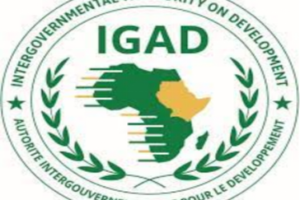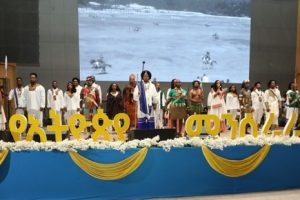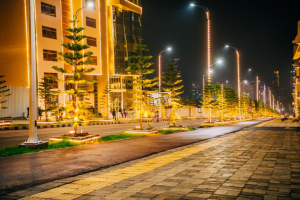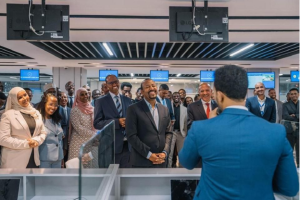BY FITSUM GETACHEW
It is a fact that Egypt has been benefitting from the waters of the Nile for centuries, undisturbed, and in fact the country Egypt would probably never have existed if it was not for the Nile water. There are no doubts about it. But paradoxically the Nile is not an Egyptian river contrary to what Egyptian politicians have tried to inculcate in the mind of their citizens for years denying the reality on the ground. In fact in Egyptian schools the Nile is presented as ‘an Egyptian property’ and many citizens of that country are convinced that it originates at the Aswan Dam which is a reservoir made by the river water that largely flows from Ethiopia crossing the valleys across the mountains and the deserts of Sudan and the neighbourhoods. These are down to earth facts and there is nothing the Egyptian politicians could do to change this state of nature.
The records show Ethiopia is the source of 85% of the Nile waters and there cannot be any denial of that either. But it has never used properly or adequately the water of the Nile despite its critical needs. Egypt has 100% access to electricity and almost hundred percent of its population enjoys access to enough water both for domestic use as well as for other purposes including agricultural ventures. The Nile in Cairo and other cities is also a means of transport where boats are used. Tourism along this river has made Egypt a rich country and now it has even begun to export water to other countries using the Nile water. It has expanded the use of the water into even remote areas in the desert on the assumption that no competitor will block the unending flow of the river that comes down from the highlands of Ethiopia.
Ethiopia on the other hand is in dire need of water for its increasingly growing population which has now reached over one hundred twenty million. The statistics show that not even forty per cent of the people have access to clean water and the same or even less percentage of people have access to electric power. What is more with the increasingly growing industrial output of the country and the opening of several industrial parks across the nation, Ethiopia desperately needs more and more energy and the only means it can secure such energy is from its rivers.
The Nile is hence the only source where the country can secure its energy needs through a dam. In fact the Grand Ethiopian Renaissance Dam, GERD, is the Ethiopian government’s response to such problem. Since more than a decade ago Ethiopia has been trying to build this dam using its own finances because its attempts to secure loans or concessions from international financial institutions have fallen on deaf ears thanks to the lobbying and influence of Egypt, a strategic partner of the west for the middle east crisis involving the Palestinians and the Israelis. In this huge contention, experts say, Egypt is considered as a ‘bridge’ between the two warring parties and the West has used it to figure out an agreement.
Hence the geopolitical situation of the area where the Nile originates and where it flows has made the issue of the GERD more than a dam that is constructed to produce clean energy at a cheap price. What is undeniable is that some Egyptian engineers have admitted that the construction of the GERD does not necessarily reduce the flow of the river in a manner that can inflict significant harm to Egypt. The problem with Egyptian politicians is that they want to conserve the hegemony in the region and the monopoly over the Nile water alleging that there is a pact that was signed between England, Egypt and Sudan decades ago.
This pact of course has no value for Ethiopia because not only is it not a party but it was not even consulted when the pact was signed. This colonial pact is the evidence that Egypt ridiculously presents to the international world arguing that would entitle her to use the water as it wishes without the interference of any other nation. There seems to be a denial that the times have changed and we are now in the twenty first century where might cannot be taken as right.
Egypt continues to accuse Ethiopia of trying to ‘strangle’ it by depriving of its means of survival which is not true. The Ethiopian government has continuously argued that there is no such intention on its parts and that the only thing it wants to do is extricate its population from perennial poverty and backwardness by availing some energy to its growing industrial plants and millions of Ethiopian families benefit from it.
Ethiopia cannot be expected to ask or secure the permission of any other nation for the use of its own natural resources as a sovereign nation. The GERD is in fact the first expression of sovereignty for Ethiopia because millions of Ethiopians expect the power that is generated from the GERD as their right and the duty of the government to fulfill the demands of the people. Every Ethiopian has contributed what is within their capacity for the financing of this huge flagship project. There is a huge sense of belonging when it comes to the project.
On the other hand, Egypt has continued to politicize the issue of the GERD by presenting it the way it wants to every possible gathering of countries and it has tried to attract the attention of the UN asking it to sanction Ethiopia for trying to build this dam. The world knows Ethiopia is a law abiding country and it has never encroached on the rights of other nations. Rather the records show that it has always been party to UN forces that were engaged in peace keeping or peace making and everyone knows how Ethiopia did take part in the Korean War in 1953 for the sake of peace and in Congo in 1960. Ethiopia hence abides by all rules of international law and the case is the same with the usage of the Transboundary River such as the Nile.
Ethiopia acknowledges the vital importance of the Nile to Egyptians, but at the same time it cannot forgo its legitimate and sovereign rights to use its natural resources and improve the lives of its citizens. Besides, Ethiopia does not understand why the tripartite treaty signed between Ethiopia, Egypt and the Sudan on the use of the Nile waters should be violated because it is abiding by it; and it is based on this treaty that Ethiopia has begun to fill the dam with water. Several international academics and water experts have determined that the construction of the GERD will not hamper the flow of the river in such a way as to determine significant harm to lower riparian. Rather it helps regulate the water when the rainy season is in full swing and that is an advantage for both Egypt and Sudan.
In the recent meeting of the Arab League countries Egypt has presented only its side of the story and tried to monopolize the platform in the end determining that the Arab League pass a resolution that does not see the other part of the issue from the entity that has equal stake in the water if not more. Ethiopia has rejected the resolution dismissing it for its one sidedness and not recognizing the rights of more than 120 million Ethiopians to have access to electric power and have better prospects with the upcoming industrial plants, investments and other ventures that would contribute to the progress and prosperity of the east African nation. What is more, raising the issue of the GERD at a platform that is not African violates the widely accepted principle that African problems should be resolved by Africans and the attempt to internationalize the GERD issue is unfortunate and unacceptable.
GERD is not a political issue but one of development and differences can be ironed out using the AU and other African mechanisms. The negotiations that have been going between the three countries, Ethiopia, Egypt and Sudan should continue under the auspices of the AU and the interference of other nations or groups of nations or organisations such as the Arab League cannot be accepted by Ethiopia. The Ethiopian government has said Ethiopia is always ready to negotiate on every matter that regards the GERD but it cannot compromise on its sovereign rights of using its natural resources in a fair and reasonable manner taking into account the needs of third states as well. Hence, it said the filling of the dam will continue guaranteeing that will not hamper the flow of the water from going to Sudan and Egypt.
The Ethiopian Herald March 16/2023





